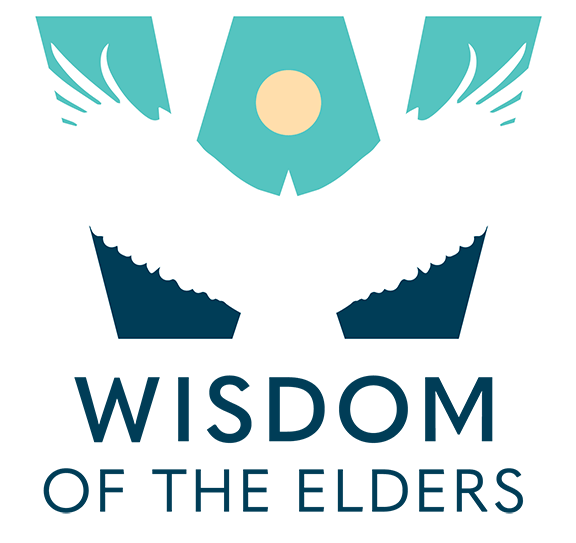
Indian Church, Lone Pine Tree Village, 1959. Gladys Seufert Photograph. Courtesy of Oregon Historical Society. http://www.ohs.org/education/focus_on_oregon_history /RLO-Document-Indian-Shaker-Church.cfm
Lorintha Umtuch
with Nico Wind
[audio:https://www.wisdomoftheelders.org/prog304/mp3/304_tr.mp3]Arlie Neskahi:
A crowd gathers in a plain hall with rustic wooden benches and floors. An altar is situated at the front, and a pot belly stove at the side. A collection of bells, hand-held school bells, are assembled on the altar, with a cross and three candles. Everyone prays and sings in their native tongue. On today’s Tribal Ryhthms, we are privledged to get a rare glimpse into the music of the Shaker Church, one of the few nineteenth century indigenous religions that are still practiced across the Northwest. Nico Wind has more.
Nico Wind:
John Slocum was an off-reservation logger and a member of the Squaxin Tribe near Olympia, Washington. In 1881, he claimed to have taken ill, died, and miraculously, to have come back to life. He began preaching a doctrine inspired by visions he had while he was in the after life. he built a church a year later. Again he fell ill, and again he recovered. This time, though, the people pointed out that it was his wife’s shaking that was really the source of the power that healed him. Mary Slocum’s contribution to the establishment of this religion also became the source of its name. The shaking was interpreted as a manifestation of the Holy Spirit and became an important part of Shaker services.
The Shaker Church was officially incorporated in Washington in 1910. It is one of many Native American religious communities that use music extensively in their gatherings. In the prayers and hymns, frequent reference to God and the Holy Spirit are intermixed with layers of Native cultural beliefs and customs. More than just a social construct, it is a living, breathing tradition that is the center of many Native lives today.
Lorintha Umtuch:
My first vivid impression of the Shaker Church is when I was a little girl, my dad asked if we wanted to go to the Shaker church. They usually have meetings after 8 o’clock. So we went to White Swan which is about twenty-seven miles from where we lived.
Nico Wind:
Lorintha Umtuch is a Yakama Native who was raised on the reservation by her parents. She’s a tribal judge, and she knows the traditions and the dreams of her people. She deeply understands the multifaceted nature of the various – and sometimes conflicting – religious landscapes in the northwest.

Indian Shaker Leaders John Slocum & Louis Yowaluck. CourtesySmithsonian Institution National Archives 3021. http://users.wi.net/~census/lesson24.html
Lorintha Umtuch:
It’s all lit by candles, and we have shaker bells up front. And one side of the room is where the women sit and the other side of the room is where the men sat. So they start singing their songs and the people walk up front and grab bells and they start ringing the bells and they would sing the songs. And when you first start out, there’s not that many people, maybe twenty, but by the end of the evening, you have about eighty people in the Shaker Church. They sing and dance and when they’re ringing the bells and they’re dancing, they say they’re shaking.
Nico Wind:
The Shakers maintain some practices that are common to other native religions. Shakers practice purification and healing rites. Both the Shaker Church and the Longhouse Religions celebrate first fruits ceremonies. The Shaker hymns, the bells, and the rhythmic movement create an atmosphere of spiritual inspiration.
Lorintha Umtuch:
To hear the bells and hear the people singing, it just fills you up. Because the bells, they have different size bells. The men have two bells they ring with their hands, and the women have their bells too. And they are lined up on both sides of the hall and they sing and dance and when they are ringing the bells and dancing the, they say they are shaking. The men are wearing big boots and the women are wearing sturdy shoes and you just hear the sound of the bells and the feet going at the same time. And they sing these very melodious and beautiful songs. And it’s beautiful and you can just get caught up in it, because the songs are so beautiful.
Delores Martin:
Shakers are really strict. 1910s are strict. They can’t gamble. They can’t drink. They can’t smoke.
Nico Wind:
Delores Smiscon Martin, born in 1924, is the daughter of a Shaker minister from White Swan, Washington.
Delores Martin:
In the Shaker way, you can’t explain it, because like God would say, you have to pray for what you want to know. You have to pray for everything that you want to know, and you pray for it and it’ll come to you.
Nico Wind:
Delores remembers traveling as a little girl to The Dalles on the Columbia River during fishing season and attending services at the Shaker village.
Delores Martin:
Went clear over to The Dalles, to this island. They called it Waatsaps. And we stayed there. And people used to come there. It was well-built then at the time. No benches, nothing. One side mens and one side womens. They, and they ah, had their Sunday ceremony.
Nico Wind:
Shaker village, a ramshackle collection of weatherbeaten buildings behind a motel, still stands today in the shadow of the giant Dalles Dam. It’s silent here. Hot winds are working to pull the walls apart. But you can sense the spirit that moved here and still moves across Indian country.
For Wisdom of the Elders, I’m Nico Wind.
